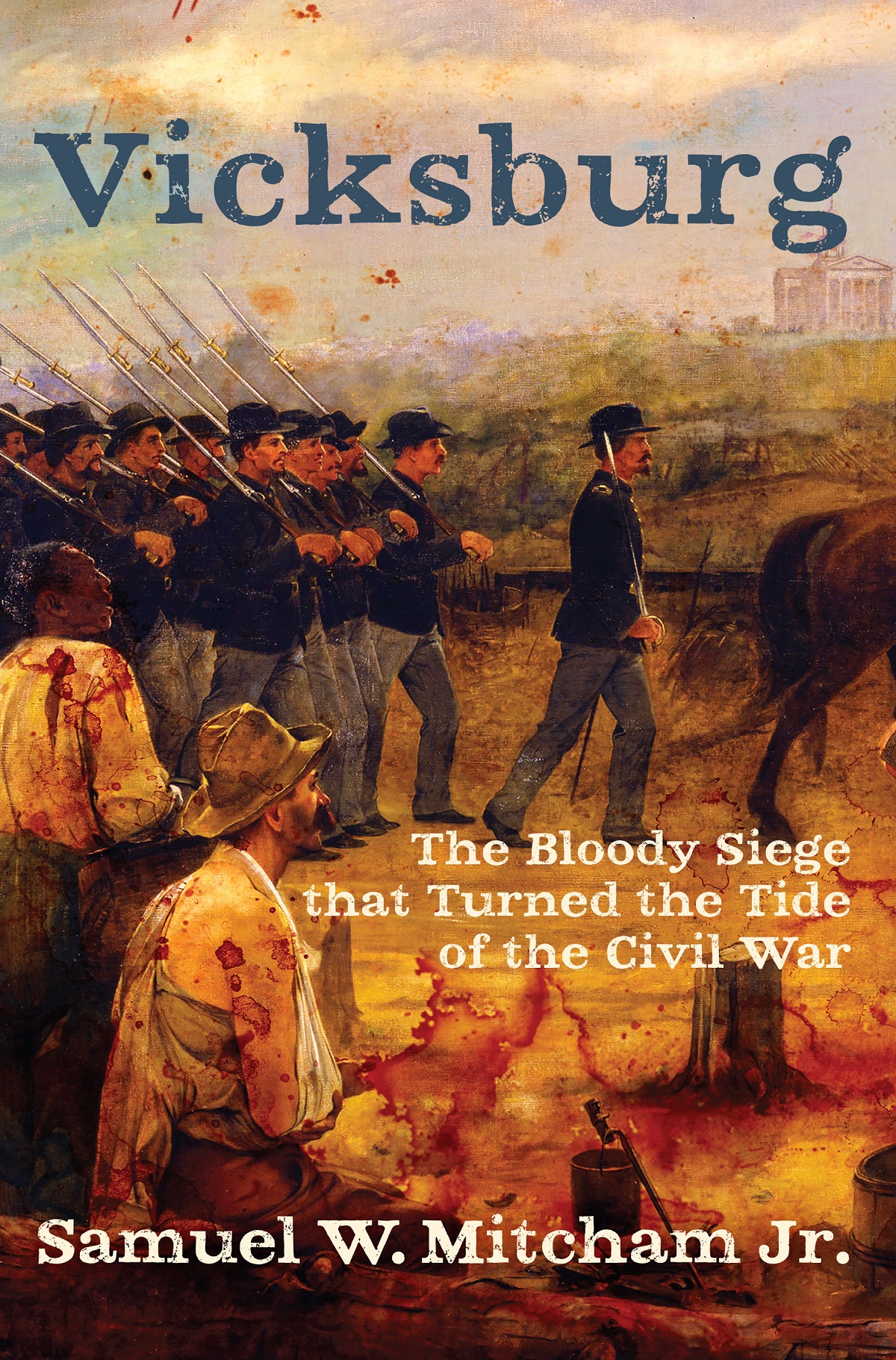On July 3, 1863, Confederate General John C. Pemberton raised the flag of truce over Vicksburg and met with Union General Ulysses S. Grant to discuss the surrender that ended one of the longest and bloodiest sieges of the Civil War. What followed caused the city of Vicksburg to not celebrate the 4th of July for eighty-one years.
Grant’s letter reached Pemberton’s headquarters at 10:00 p.m. If he surrendered, it read, his men would be paroled, fed, and allowed to go home. Thus, the soldiers of the Army of Mississippi escaped Yankee prisons, where the mortality rate was 12 percent. But given the depleted physical condition of the defenders of Vicksburg, their death rate would certainly have been higher. Pemberton immediately called for a conference of his generals. General Pemberton then told his officers that he knew opprobrium would be poured on him for surrendering, especially on the Fourth of July. He remarked that he would prefer to try to fight his way out at the head of his army, rather than face “the shame and disgrace” that would be heaped upon him. However, “It is my duty to sacrifice myself to save the army, and I therefore shall offer to surrender this army on the 4th of July.”
Several of the officers objected to this date because it would be a double humiliation. Pemberton, however, disclosed his reasoning. “I am a Northern man,” he declared, “and I know my people. I know their peculiar weaknesses and their national vanity. I know we can get better terms from them on the 4th of July than any other day of the year. We must sacrifice our pride to these considerations.”
Colonel William H. McCardle of Pemberton’s staff was present at the meeting. He recalled Pemberton saying, “Those fellows will be so elated to get in here on July 4th, that they will give us better terms.”
Pemberton responded to Grant’s terms, asking for a rather complicated face-saving gesture. His message arrived at Grant’s headquarters shortly after midnight on July 4. Pemberton’s soldiers would be allowed to march out of the fortifications bearing their arms and flags before the Yankees marched in. After the army had gone a considerable distance, it would stack its arms and colors. Meanwhile, the Northerners would occupy Vicksburg. Officers could keep their sabers, sidearms and personal property, including such horses as had not been eaten. Grant agreed to all of this. Once the Rebels had stacked arms, however, they would have to march back into town to be paroled, Grant declared. Pemberton agreed to this.
Pemberton was probably right when he declared the garrison would get better terms if it surrendered on the Fourth of July than on any other day. He was certainly right when he predicted he would be the target of anger when he did so. The 3rd Louisiana, for example, received the news with “indignant rage.” They smashed their trusty rifles and scattered their remaining ammunition on the ground so that the Yankees could not use it. Some units tore up their beloved battle flags and distributed the pieces to the men, rather than surrender them to the Northerners.
About 9:00 a.m. on July 4, the Army of Mississippi stacked arms. The Union soldiers did the same. “Then in broken ranks they came up the hills we had held so long, calling to us in a jocose way, and extending their hands in friendly greetings,” Robert Bachman of the 60th Tennessee recalled. “Soon there was a general mingling of gray coats and blue coats, as if there were no differences between them and never had been.”
The Confederate army marched out of their trenches at 10:00 a.m., in accordance with the surrender terms. There was no talking. Only eleven thousand men were healthy enough to take part in the ceremony. All of them were depressed, and some of them were crying. The Union soldiers stood by silently, some with their hats off. It was like a funeral.
One Northern division even cheered the tattered Rebels. One Confederate officer said the Yankees behaved “splendidly.” When the Northerners marched into Vicksburg, every house was closed. Inside, most of the civilians wept.
General Grant rode in with the troops and went to the river, to congratulate the sailors. “. . . [T]he fate of the Confederacy was sealed when Vicksburg fell . . .” he wrote later. “Really, I believe there was a feeling of sadness just then in the breasts of most of the Union soldiers at seeing the dejection of their late antagonists.”
After the ceremony, Grant paid an unannounced visit to General Pemberton at General Forney’s Headquarters. Pemberton was sitting in a damask-cushioned, armed rocking-chair, and one witness said he was “the most discontented looking man I ever saw.” Grant was clearly unwelcome. There was no seat available and neither Pemberton nor any of his officers offered the Federal his chair. Grant had no official business to discuss and tried to make small talk, but Pemberton would have none of it. After about five minutes, the conqueror left.
Vicksburg slowly recovered after the war, but it never forgot the siege, the brutal military occupation that followed, the oppression of Reconstruction and the subsequent post-war poverty. It was World War II before the city celebrated the Fourth of July again on a regular basis. Prior to that, all businesses—including the banks—remained open.
This is an exclusive excerpt from Dr. Samuel Mitcham’s newly-released title, Vicksburg: The Bloody Siege that Turned the Tide of the Civil War (Regnery Publishing; June 4, 2018). Dr. Mitcham is a retired university professor and the author of over twenty military history books.

book cover courtesy of Regnery Publishing
The views and opinions expressed in this commentary are those of the author and do not reflect the official position of The Daily Caller.


